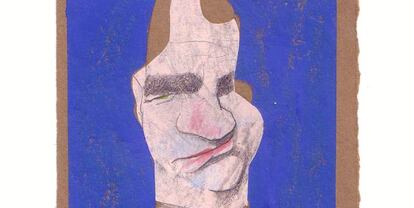The challenges facing Felipe VI
Spain’s new king knows he must stamp his own identity on an institution in crisis


“King Juan Carlos earned his pay because of his role in the transition from dictatorship to democracy, as well as for his handling of the attempted coup in 1981,” says Andrés Cassinello, the man who was in charge of Spain’s secret service on that fateful February 23 three decades ago. The country has changed immeasurably since then; it is unlikely that Juan Carlos’ heir from today on, King Felipe VI, will have to deal with military upstarts. Nevertheless, he will face an uphill struggle in winning the trust and respect of the Spanish people.
The 46-year-old monarch and his wife Letizia are seen by many people as belonging to yet another of Spain’s wobbly institutions, weakened by corruption and scandals. Which explains why Felipe took specific care to mention both the country’s unemployed and the university graduates who have taken low-paid, low-skilled work abroad during his recent speech at the Prince of Asturias Awards ceremony, his annual opportunity to speak his own words. He said he understood the “frustration, the pessimism, and the lack of trust,” and called on all Spaniards to join in the task of overcoming the mood of gloom. “What we really need to do,” he said, “is regain our hope and self-confidence.”
The reality is that there is very little Felipe can do to contribute to that task. Spain is a constitutional monarchy, and his role is largely ceremonial. If called on, he can act as an arbitrator or moderator, but, for example, he cannot force Prime Minister Mariano Rajoy to sit down with the regional premier of Catalonia, Artur Mas, to reach a solution over his plans for an independence referendum on November 9. Instead, all he can do is call for unity and show that he understands the concerns of Catalonia – he speaks Catalan fluently and has visited the region six times this year, with a seventh trip scheduled for June 26.
The reality is there is little Felipe can do to help Spain regain its hope and self-confidence
Spain’s new king is all too aware of the declining popularity of the institution he represents. The last official survey from the Center for Sociological Research (CIS), which was carried out a month ago, gave the monarchy an average approval rating of just 3.72 out of 10. This was a slight improvement on the last study, from 2013, which was down to 3.68. Scandals such as the alleged tax fraud and embezzlement by the king’s son-in-law, Iñaki Urdangarin in the so-called Nóos case, as well as anger over the way that an injury King Juan Carlos sustained during a hunting trip to Botswana was initially kept secret, have all had a negative impact. King Felipe has avoided any public contact with his sister, the Infanta Cristina and her husband, since the Nóos case emerged. The courts will decide in the coming days whether Cristina is to face a full investigation, but it is certain that Urdangarin will be tried, and may even face prison.
The monarchy has also suffered from the political crisis that is affecting other institutions in Spain. In fact, the Church, the Spanish parliament and the current government are all scoring lower than the crown in approval ratings. Felipe knows that from now on he cannot put a foot wrong; one way to limit the damage caused by the Nóos case is to make the monarchy a more transparent institution. He is also aware, and always has been, that he needs to stamp his identity on the monarchy. “I prefer to be myself, and for people to judge me by my own actions,” he said in a magazine interview at the age of 21.
And while he works hard to keep in touch with Spanish society, inviting business leaders, politicians, and even figures from the world of entertainment to his official residence at the Zarzuela Palace, he lacks the charisma and intuition of his father, instead seeming to take after his mother, a more disciplined, thoughtful figure.
Felipe knows that from now on he cannot put a foot wrong
While his father likes to break the ice with a joke, Felipe will ask a question. “The king conquers by being a nice guy, and Felipe by showing an interest in everything,” says one cabinet minister.
Prior to any official undertaking, he reads up on the topic in hand, and is able to demonstrate his knowledge when talking to business people, leaders, or academics at official gatherings. This has worked in his favor, for example, during his 69 trips to Latin America to attend swearing-in ceremonies.
King Felipe admires his father for the commitment he has shown over the last four decades, particularly during the troubled times that culminated in the attempted coup of February 23, 1981, when King Juan Carlos kept him by his side the whole night. But he also knows that today, one of the biggest challenges he faces is to reach out to the generations that have been born since, the majority of whom say in opinion polls that they would prefer to live in a republic, with a president as head of state, rather than a monarchy with him as king.







































